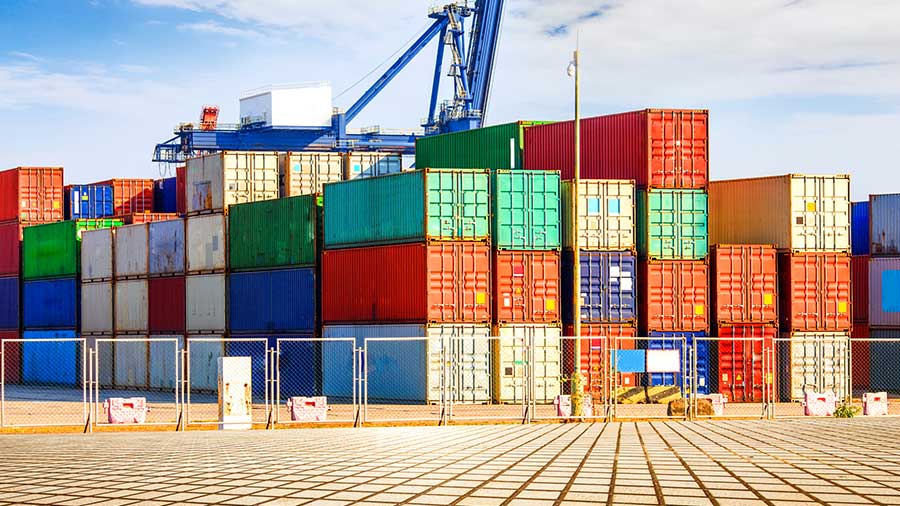Funding Vietnam’s Green Growth: The ESG Initiative and Work of Credit Institutions
Vietnam’s regulators, banks, and international aid agencies are promoting the adoption of ESG – an acronym for “Environmental,” “Social,” and “Governance” – by private sector enterprises by easing access to funding sources. However, regulatory and policy reforms, including the establishment of a green taxonomy, are needed to encourage banks to provide green credit.
The Vietnam ESG Initiative is among key efforts to support the implementation of Vietnam’s Green Growth Strategy for the period 2021-2030 and Decision 167/QD-TTg 2022. Embracing ESG and sustainable practices will enable businesses to seize new opportunities in the context of the green transition and enhance their competitiveness in the global supply chain.
At the annual Vietnam Business Forum (VBF 2024), Prime Minister Pham Minh Chinh reiterated that green growth is one of the two core elements of economic restructuring and growth model transformation. This shift aims to improve productivity, quality, efficiency, competitiveness, and achieve rapid, sustainable development in the country.
What is the Vietnam ESG Initiative?
The Vietnam ESG Initiative is a program designed to support businesses in implementing the ESG assessment framework and sustainable business practices. This initiative results from collaboration between the United States Agency for International Development (USAID) and the Agency for Enterprise Development (AED) under the Ministry of Planning and Investment (MOPI). Its goal is to facilitate private sector involvement in promoting sustainable and inclusive growth.
The Vietnam 2024 ESG Initiative will assist private sector enterprises in adopting ESG and sustainable business assessment frameworks. The program will fund pilot projects and the implementation or expansion of exemplary initiatives to promote sustainable business models, offering technical support valued at up to VND 2 billion (US$81,276) annually. The top three businesses selected will be announced in November this year.
Ms. Trinh Thi Huong, Deputy General Director of the Agency for Enterprise Development, highlighted that adopting ESG practices helps firms meet market requirements, enhance their reputations, and, importantly, increase access to green capital sources.
Diversifying green capital sources has been a priority for various financial and credit institutions in Vietnam recently. As demand rises, creating secure and accessible funding channels for green investments has become a significant challenge for the country.
Efforts to establish green funding channels in Vietnam
Rising demand for green credit
Recent data from the State Bank of Vietnam (SVB) shows that the outstanding balance of green credit in the banking system grew by an average of 22 percent annually between 2017 and 2023. As of March 31, 2024, SVB recorded that 47 credit institutions had outstanding green credit balances totaling VND 636.964 trillion (US$25.02 billion), accounting for 4.5 percent of the total outstanding balance of the economy. As of December 31, 2023, these funds were primarily concentrated in renewable energy, clean energy (nearly 45 percent), and green agriculture (nearly 30 percent).
Outstanding credit loans assessed for environmental and social risks by the credit institution system have grown steadily over the years, now reaching about VND 2.9 quadrillion (US$113.9 billion), making up more than 21 percent of the total outstanding loans of the economy.
The Vietnamese Government’s promotion of ESG practices, the growing demand from investors, and the potential for increased returns are strong drivers of the trend. This matches with the general agenda for a sustainable economy and society. More precisely, Vietnam has been taking steps to create an environment that is conducive to ESG investment, such as passing laws related to environmental protection, sustainable development, and corporate social responsibility. – Marco Förster, ASEAN Director, Dezan Shira & Associates
Vietnam ESG Forum
At the Vietnam ESG Forum on May 22, Deputy Governor of the SBV Dao Minh Tu stated that many credit institutions are actively collaborating with their international counterparts to tap into green capital sources and technological support. These resources are aiding Vietnam’s credit institutions in developing internal environmental and social risk management regulations for various credit-granting activities.
Many credit institutions have developed green credit programs and packages tailored to the characteristics of business activities and green transformation. For example, Nam A Bank, in its 2024 business strategy, will continue to focus on implementing business activities associated with digitalization and greening strategies. The bank has built a diverse portfolio of green credit products, focusing on electric cars, renewable energy, and clean energy, and has piloted the Draft White Paper on carbon neutrality goals at business units.
The SVB Deputy Governor highlighted four key issues in ESG implementation in the banking system:
- Adhering to ESG regulations: The increasing number of ESG regulations requires banks to continuously update and comply with evolving rules and policies to demonstrate their environmental and social responsibilities.
- Enhancing credibility: The banking industry must integrate and be transparent about ESG-related matters to enhance its credibility.
- Improving risk management: ESG risk management is interconnected with other risks faced by credit institutions, including credit, market, liquidity, strategy, and reputation risks.
- Opportunities for growth: Pursuing ESG initiatives provides credit institutions with opportunities to expand their market and develop new credit products by accessing green capital from international financial organizations.
Bank contribution to green credit
According to the “Practical Implementation of ESG at Vietnamese Commercial Banks” report released by the SVB last April, several banks have made significant contributions to green credit:
- Military Commercial Joint Stock Bank (MB): As of 2023, about 10 percent of its total outstanding loans were for green credit areas, with a goal to increase this to 15 percent by 2026.
- Vietnam Prosperity Joint Stock Commercial Bank (VPBank): VPBank has implemented a green credit granting regulation framework, upgraded its environmental and social risk management system, and became the first bank in Vietnam to publish Climate-related Financial Disclosures.
- Vietnam Bank for Agriculture and Rural Development (Agribank): Since 2016, Agribank has launched preferential credit programs for clean agriculture with VND 50 trillion (US$1.96 billion) in capital. By February 2023, the bank’s loan sales in clean agriculture and high-tech agriculture reached around VND 25 trillion (US$0.98 billion).
- Saigon-Hanoi Commercial Joint Stock Bank (SHB): From 2018 to present, SHB’s total outstanding balance on green projects has grown nearly 150 percent, with roughly VND 1 trillion (US$39.3 million) disbursed for these projects. Credit for clean energy and agriculture constitutes 37 percent of SHB’s total outstanding balance.
The need for a green taxonomy
According to the SBV’s Department of Credit for Economic Sectors, promoting green credit is currently facing obstacles, primarily due to the lack of a national green taxonomy.
Per the World Bank’s definition, a green taxonomy “identifies the activities or investments that deliver on environmental objectives, helping drive capital more efficiently toward priority environmentally sustainable projects. The guide can help banks and other financial institutions originate and structure green banking products (e.g., loans, credits, and guarantees).”
Vietnam’s regulators view a green taxonomy as essential for the SVB to evaluate the effectiveness of policies aimed at fostering national green growth targets. Financial institutions can use a green taxonomy to determine investment norms and scales, and to create suitable policies, products, and services.
Vietnam is the first country in ASEAN to develop a statistical guide on credit regarding the list of green projects. The SVB introduced this guide in 2017, detailing 12 green industries. However, the list is not comprehensive enough to serve as a national green taxonomy.
There is currently no unified green classification among different governmental agencies in Vietnam. This lack of standardization hinders the proper statistical accounting of the banking industry’s green credit resources for the economy, resulting in green credit comprising only 4.5 percent of the economy’s outstanding debt.
Recommendations from the 2024 Vietnam Business Forum
During the 2024 Vietnam Business Forum (VBF 2024) held last April, representatives of relevant state agencies and financial institutions proposed several recommendations to encourage funding for green projects:
- Implementing general regulations on a national green taxonomy that align with current industry classifications and international practices.
- Developing policies to encourage the carbon market and expedite the official launch of a carbon credit trading platform in Vietnam.
- Having the Ministry of Natural Resources and Environment and other governmental agencies collaborate to develop and promulgate a set of environmental criteria for green credit grants.
The SVB also committed to continuing credit policies that promote green growth in the banking industry’s activities during the VBF 2024.
Conclusion
ESG adoption is crucial for Vietnam’s banks and financial institutions to access green funds from international sources, providing essential capital for businesses. However, improvements in regulations and policies, particularly the implementation of a green taxonomy, are necessary to fully realize these opportunities.
About Us
Vietnam Briefing is published by Asia Briefing, a subsidiary of Dezan Shira & Associates. We produce material for foreign investors throughout Asia, including ASEAN, China, and India. For editorial matters, contact us here and for a complimentary subscription to our products, please click here. For assistance with investments into Vietnam, please contact us at vietnam@dezshira.com or visit us at www.dezshira.com.
Dezan Shira & Associates assists foreign investors throughout Asia from offices across the world, including in Hanoi, Ho Chi Minh City, and Da Nang. We also maintain offices or have alliance partners assisting foreign investors in China, Hong Kong SAR, Dubai (UAE), Indonesia, Singapore, Philippines, Malaysia, Thailand, Bangladesh, Italy, Germany, the United States, and Australia.
- Previous Article The Video Game Industry in Vietnam: Opportunities and Challenges
- Next Article Trends in Vietnam’s Banking Industry and 2024 Outlook
































